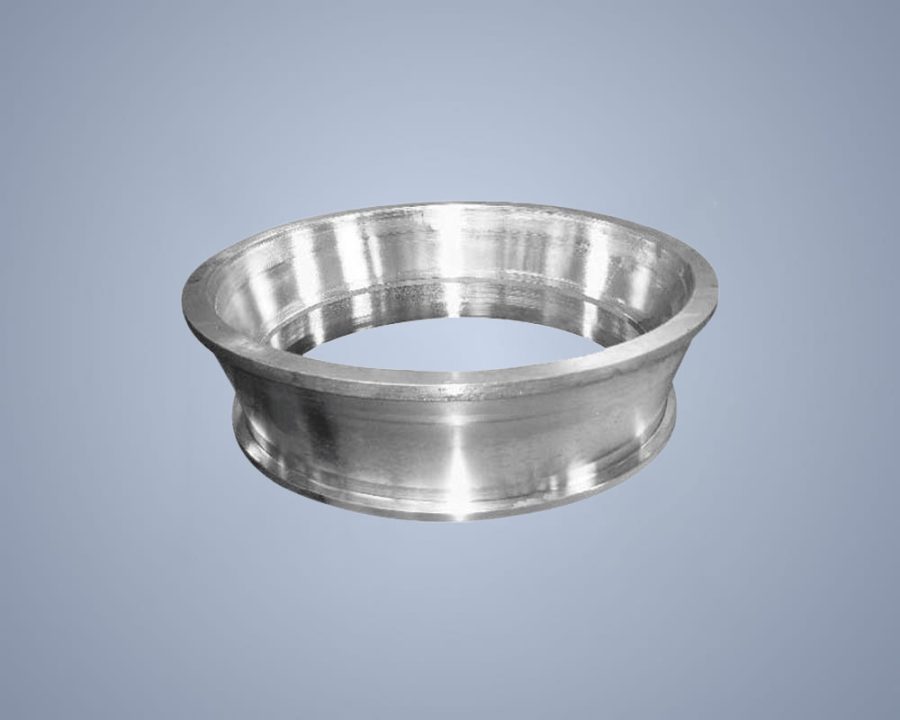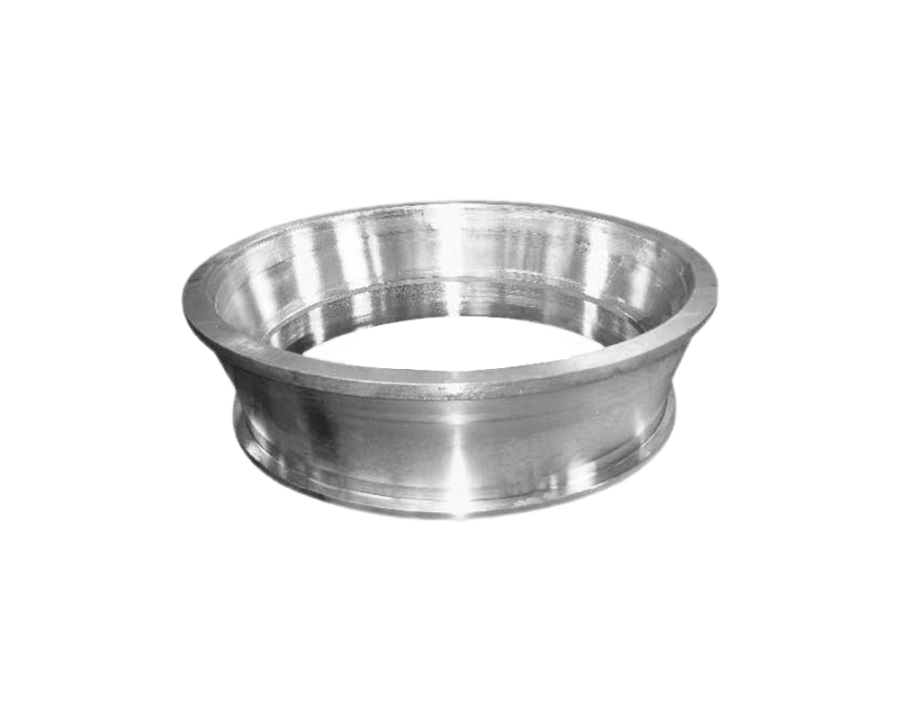Forgings for mining
The forging materials for ring forgings are believed to be familiar to most friends engaged in forging, generally including various types of carbon steel and alloy steel. Both of these materials are very sturdy and have excellent ductility, making them particularly suitable for making forging dies. Therefore, most workers prefer to use both materials for forging, as they are both convenient and comfortable to use. The original state of materials can also be divided into several types, starting with bar materials. This simple material selection method is more suitable for general forging dies. There are also ingots, metal powders, and liquid metals. In the process of separating the forging body from the flash edge, it is inevitable to be affected by factors such as bending and stretching, resulting in deformation of the forging, which seriously affects the subsequent processes of the forging and directly affects the accuracy of the forging.


Near isothermal forging in ring forging not only reduces the effects of mold quenching and material strain hardening, improves material plasticity, but also reduces deformation resistance, which is beneficial for simplifying the forming process and forming forgings with complex shapes with fewer deformation steps. In terms of materials, near isothermal forging is mainly used for forging metal materials with narrow forging temperatures, especially for titanium alloys and high-temperature alloys that are highly sensitive to deformation temperatures; In terms of part shape, near isothermal forging is suitable for forgings with thin web plates, high ribs, and thin walls, as the heat from the billet of such parts is quickly absorbed by the mold
Premium Flanges For The Oil And Gas Industry
Looking for world-class flanges for your industry? We at Huaxi Flange offer premium flanges with unmatched strength and top-notch performance.

Slip-On Flanges
Slip-on flanges on the pipe and connect without utilizing additional tools for installation. The design of slip-on flanges allows direct and secure pipe connections that can withstand high pressure and temperature conditions without leaking or bursting.

Weld Neck Flanges
A weld neck flanges transfers stress to the pipes, lessening the high-stress concentration at the bottom of the flange. This attribute of weld neck flanges makes them suitable for the oil and gas industry.

Blind Flanges
Blind flanges temporarily or permanently block the flow of fluids or gases in a pipeline. It is beneficial when a pipeline needs to be disconnected from the rest of the system for maintenance, repairs, or other purposes.

Lap Joint Flanges
Lap joint flanges are appropriate for connecting pipes or equipment or fittings together. These flanges are quite similar to slip-on flanges. They are designed to slide over the pipe and create a secure pipe connection using bolts and a stub-end fitting. They are not welded to the pipe and can spin to match bolt holes that are not predetermined. You will see these parts in shipyards often.

Threaded Flanges
A threaded flanges connects a device securely to a pipe without welding. Threads create a secure and leakage-free connection between the flange and the pipe. Threaded flanges work well for fixing equipment quickly.

Socket-Weld Flanges
Socket-weld flanges are suitable for smaller-diameter pipes and operate in lower-pressure/temperature systems. Insert the pipe into the female socket of socket-weld flanges, and then a fillet weld is used around the top to create a connection. It allows a seamless flow of liquid or gas in the pipe.
Other Industries We Serve
Explore diverse industries where flanges truly shine – Huaxi Flange offers solutions for all.

Petrochemical Treatment And Processing
In chemical processing plants, flanges connect pipes and other equipment, ensuring the smooth flow of hazardous chemicals and petroleum products without any leakage.

Power Generation
Flanges join steam and water pipes, assuring a secure transport of fluids in boilers, turbines, and condensers in power plants.

Industrial Pumps And Manufacturing Systems
Flanges are vital in this industry, ensuring the secure connection of pipes and pumps without any leakage in the manufacturing sector.

Food And Beverage Processing
Flanges join pipes in manufacturing and processing lines in the food and beverage industry, ensuring the hygienic and effective movement of liquids and gases.

Large-Scale Pipe Systems And Waterworks
Flanges connect pipes and maintain the integrity of gigantic systems in the mining and construction sectors and municipal water delivery systems.

Heat Exchangers And Systems
Heat exchangers experience thermal expansion. Flanged connections can adapt this movement, preventing pressure on the components and reducing the risk of damage or failure.

Nuclear Power Plants
A flange is essential for the system's safety in the pipeline engineering of nuclear power plants. The main form of its failure is corrosion.
WHY CHOOSE US
Your ANSI Flange Journey Starts Here
Get a diverse range of industrial flanges with unparalleled strength and exceptional performance.
- Tailor-made solution: Design flanges with specific dimensions and materials to cater to the project’s unique needs.
- Unrivaled Expertise: We are a team of professionals with in-depth knowledge of flanges and diverse applications for industries.
- Global Reach: Ensuring smooth and on-time product deliveries with an extensive distribution network, no matter where your location is. We have shipped to every continent on the globe. (Yes, including Antarctica).
- Quality Assurance: Flanges undergo rigorous testing to ensure durability, safety, and compliance.

Frequently Asked Questions (FAQs)
Raised face flanges have a raised ring around the pipe bore, which provides a sealing surface, while flat face flanges have a flat surface. RF flanges are suitable for most applications, while FF flanges are used when gasket seating is required.
